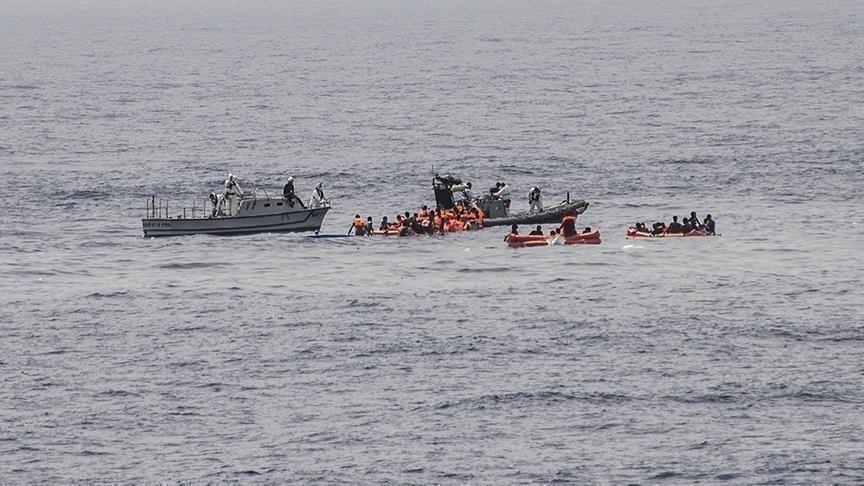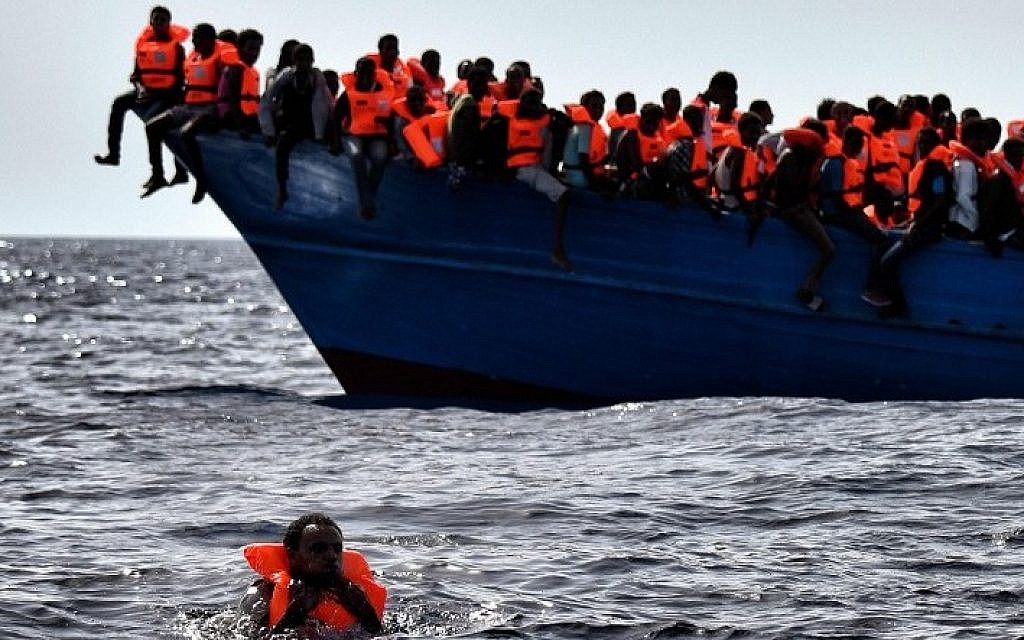‘I am lucky to survive from Zintan.’
The EU-backed Libyan Coast Guard has intercepted more than 13,000 asylum seekers and migrants at sea this year, preventing them from reaching Europe – already a greater number than in all of 2020. Those intercepted are returned to Libya and sent to detention centres where a well-documented cycle of extortion, torture, gender-based violence, and trafficking has been taking place for years.
Following reports this week of minors being sexually assaulted by Libyan guards, the European Commission, the EU’s executive body, said on 21 June that migration detention centres in the country needed to close.
At a glance: Libya’s stalled detention centre reforms
- The EU-backed Libyan Coast Guard has already intercepted more asylum seekers and migrants in the Mediterranean this year than in all of 2020.
- Those returned to Libya are automatically sent to detention centres where they face extortion, torture, and trafficking.
- EU efforts to work with Libyan authorities to improve conditions in the centres have so far been ineffective, according to human rights and aid groups.
- A plan last year to close the centres most notorious for abuse appears to have been more about consolidating political control than improving conditions for detainees.
- UN agencies and NGOs attempted to coordinate support for detainees being released from a facility in the town of Zintan. The shortcomings of that effort underscore the limitations of the international aid response.
- Former detainees said they felt abandoned by the international community and saw little choice but to keep trying to cross the Mediterranean to Europe, often restarting the cycle of interception, detention, and abuse.
At the same time, the EU is facing intensifying scrutiny over its hand in the system due to its support for the Libyan Coast Guard – including the use of its aerial surveillance assets to coordinate interceptions and returns to Libya. It is criticised more broadly for offshoring its efforts to curb migration to a country where the international community is helpless when it comes to protecting asylum seekers and migrants, both in and out of detention.
Read More → The legal battle to hold the EU to account for Libya migrant abuses
Médecins Sans Frontières (MSF), one of the few NGOs periodically granted access to provide assistance inside Libyan detention centres, said on 22 June it is temporarily suspending activities in two facilities in the capital, Tripoli, due to an escalation of tensions inside since February. Over this period, MSF staff documented several deaths, treated detainees for fractures and gunshot wounds, and witnessed people being beaten by guards as they attempted to leave their cells for consultations with doctors.
Last year, Libya’s Department for Combating Illegal Immigration (DCIM) – which oversees the country’s 20 or so official migration detention centres – decided to shut down and replace some of the facilities most notorious for abuse.
“We are opening centres in areas beyond the control of the militias or outside towns where human traffickers are active,” Mabrouk Abd al-Hafiz, the head of the DCIM, told The New Humanitarian in an interview last December.
On its surface, the plan appeared to be a long-awaited step toward reform, and at least five detention centres have been shuttered since September last year, including Dhar el-Jebel in the town of Zintan, which The New Humanitarian visited in December while it was being shut down. The other four were in the coastal towns of Al-Zawiyah, Zuwara, Sabratha, and Al-Khoms – all known hubs for the people smuggling trade.
In addition to the closures, the DCIM has lived up to its promise to open new facilities. Euphemistically referred to as “Gathering and Return” centres – and controlled by commanders close to Abd al-Hafiz – these include two in the desert far from the Libyan coast where conditions are reportedly harsh and the same cycle of abuse is taking place.







.jpg)